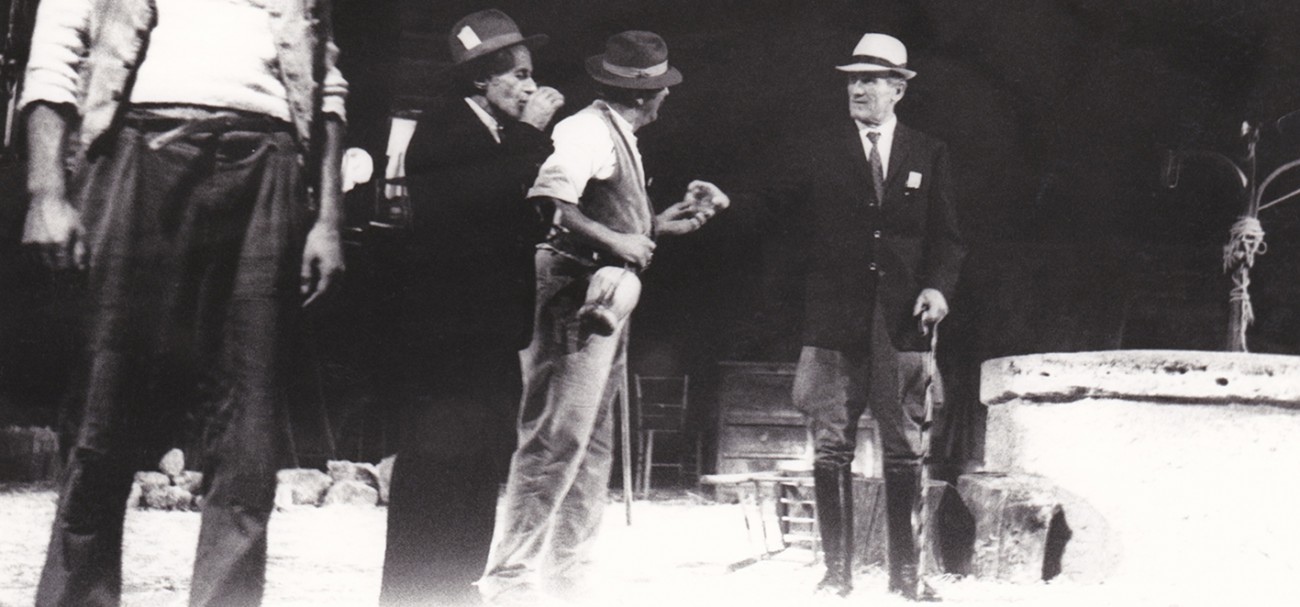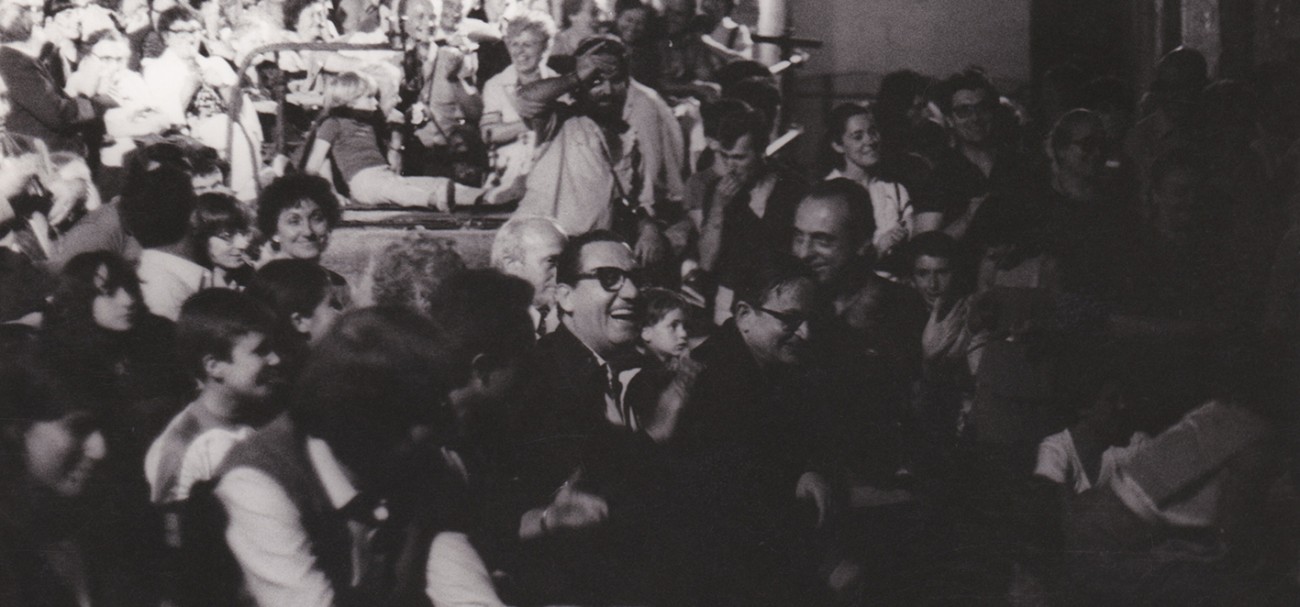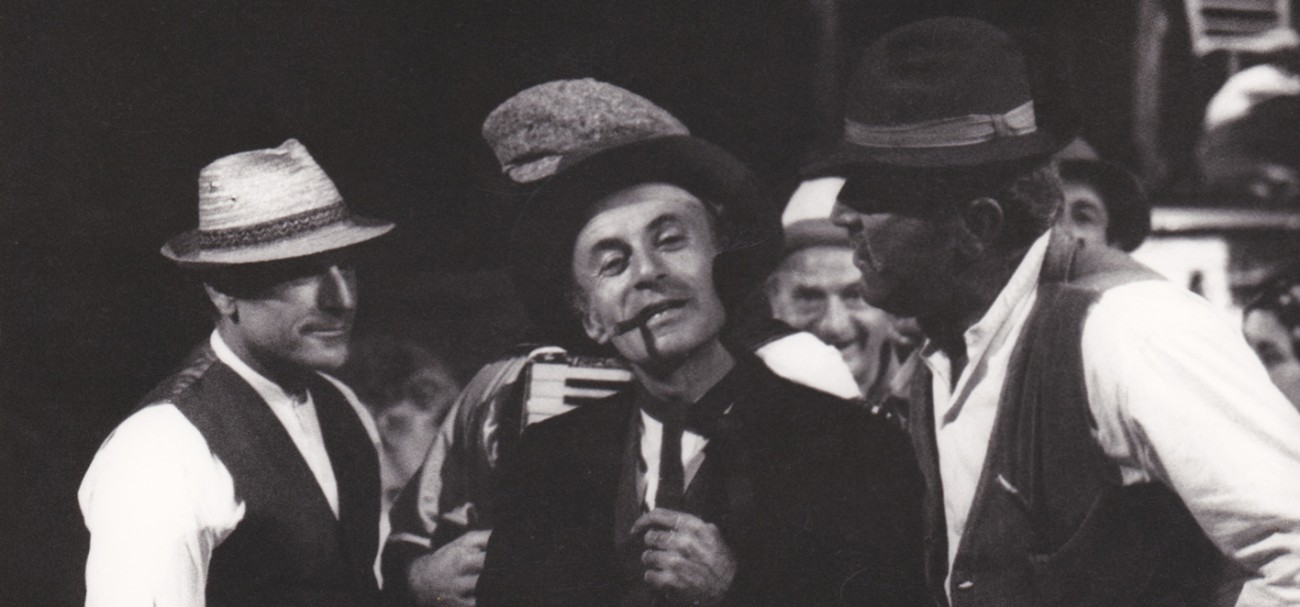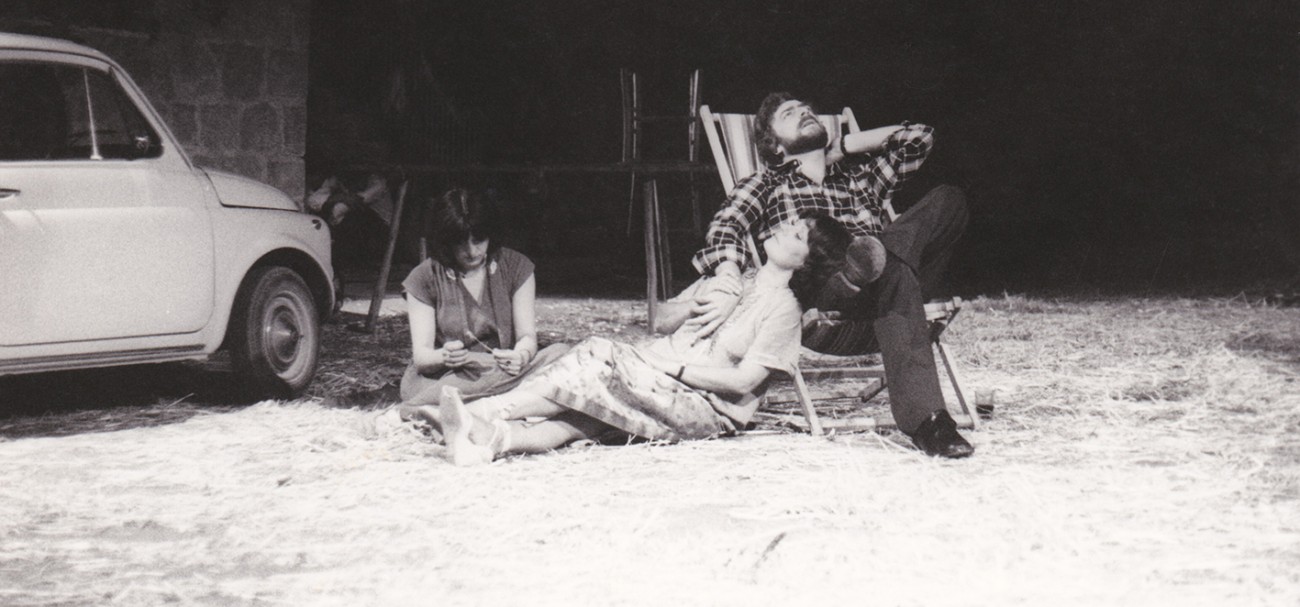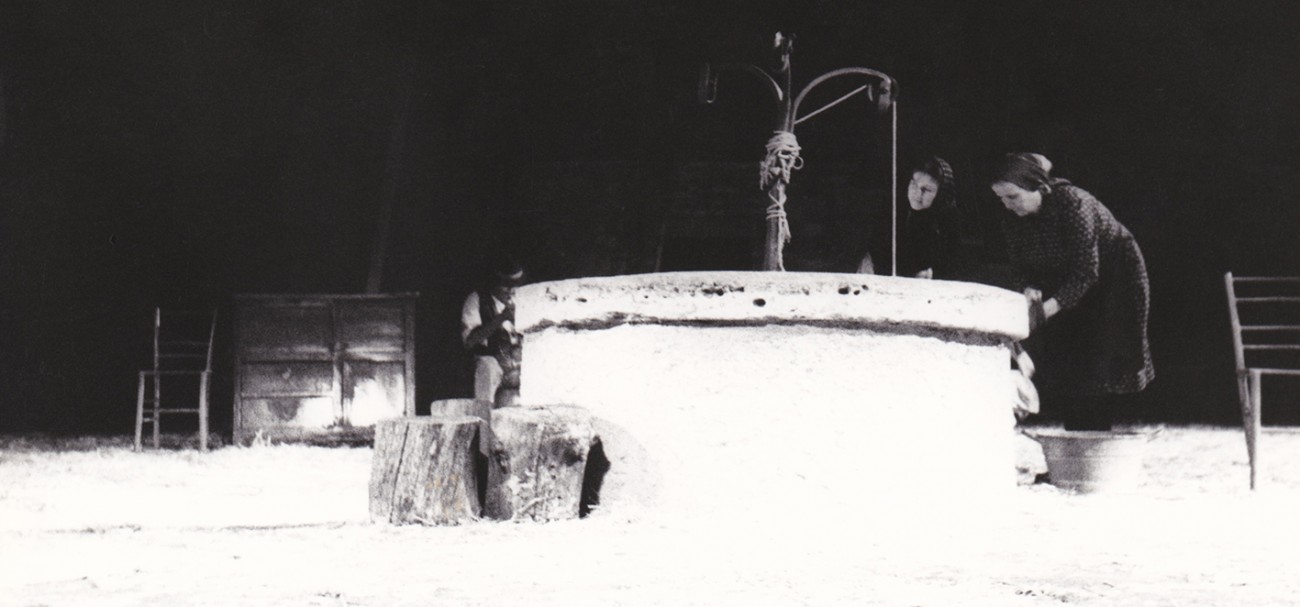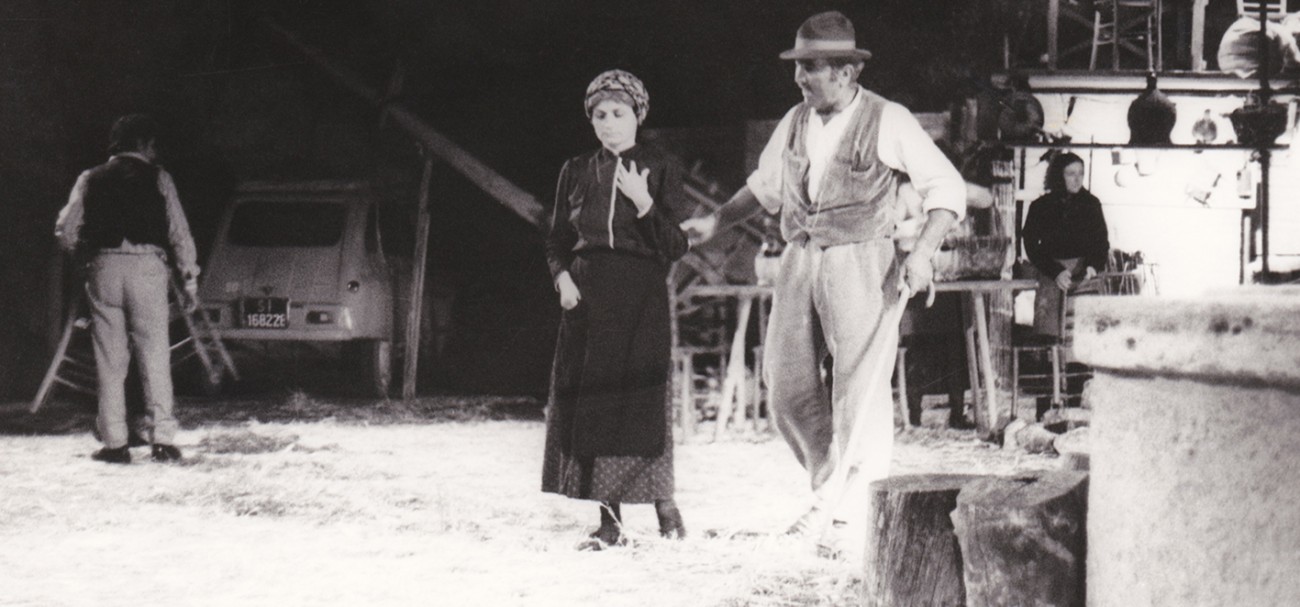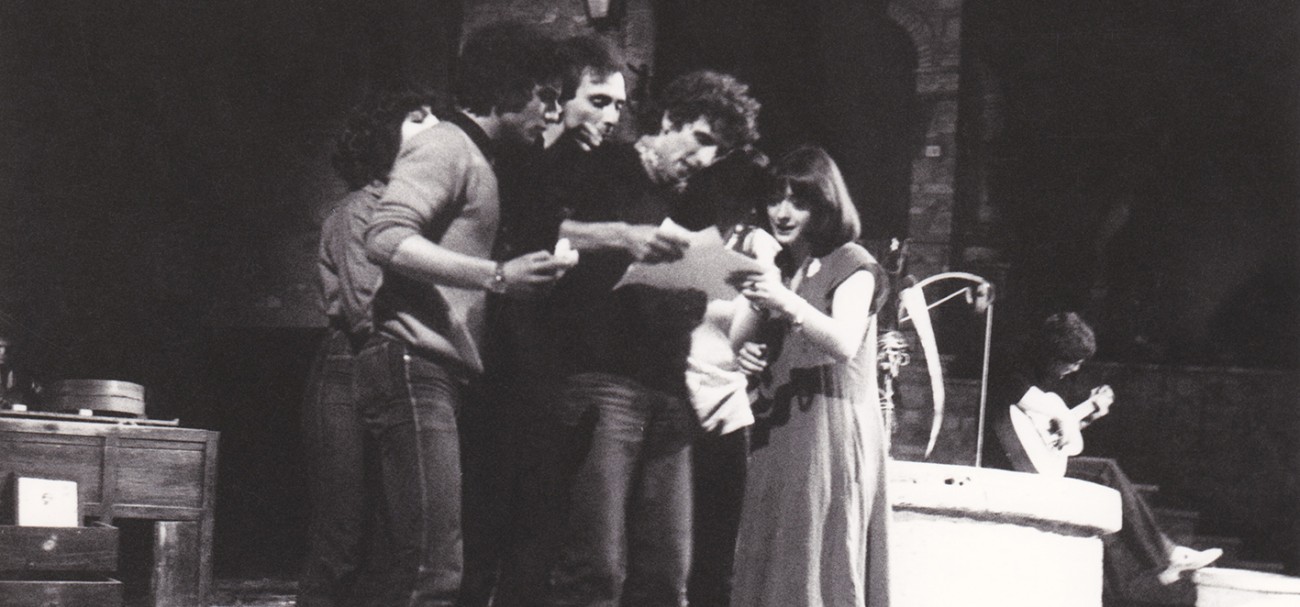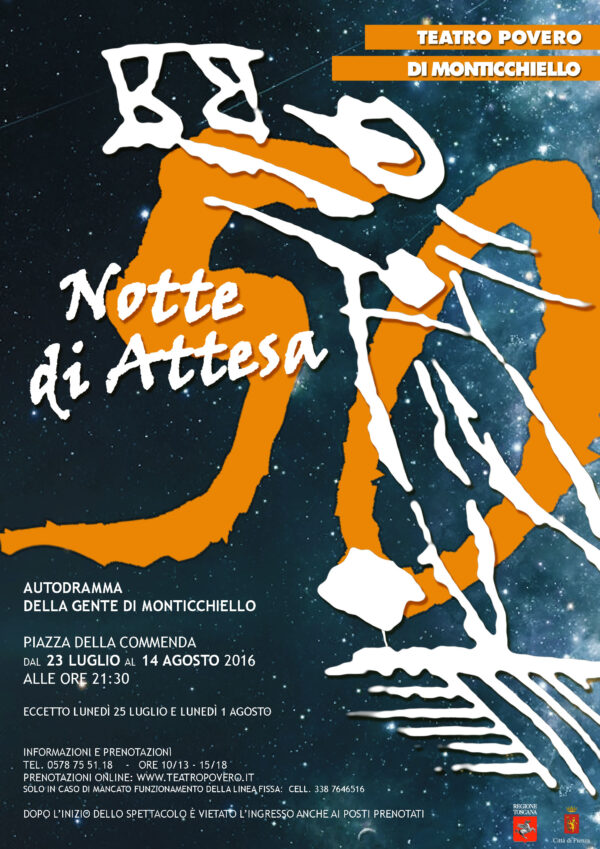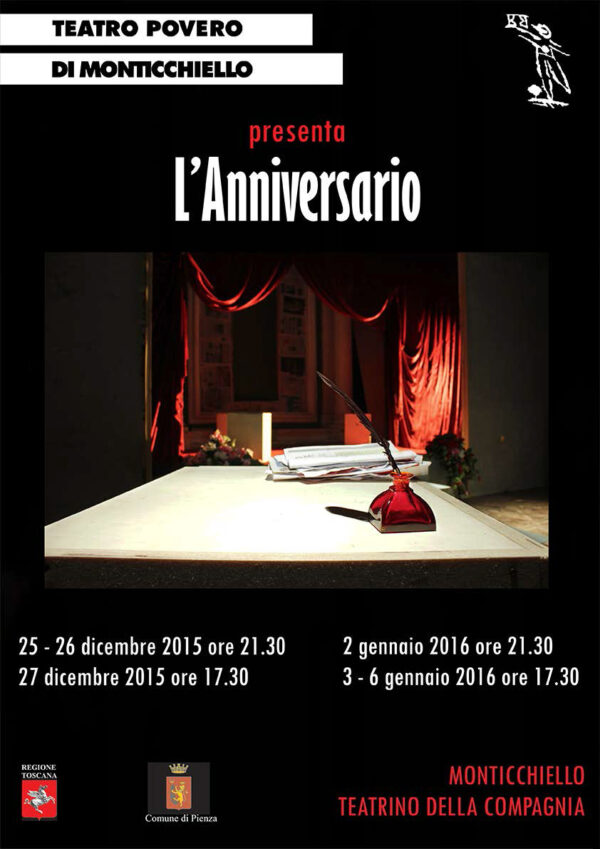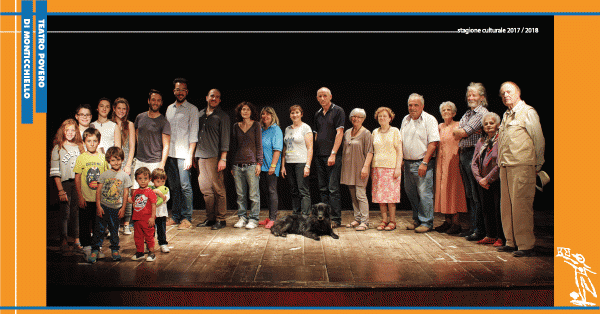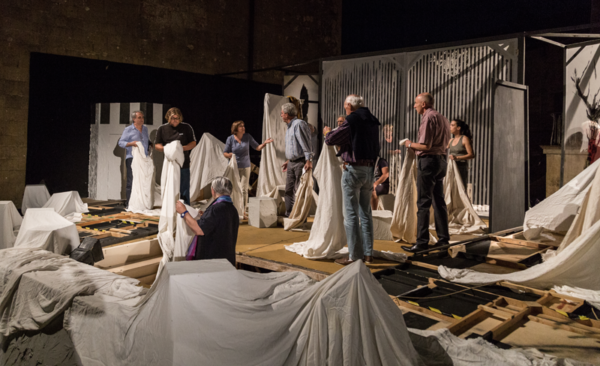After the Lazzaretti digression, the Teatro Povero returned to its established autodramma formula, and this year addressed a particularly topical problem: the crisis of the married couple. It was a subject which had already been hinted at previously, especially in Quelle e queste donne (1977), always in the larger context of examining and depicting the peasant family.
This time, however, the autodramma focused a little more on the the negative aspects of the peasant family as well as on its virtues. All in the cause of a more balanced assessment of a peasant culture which was undoubtedly rich and fascinating, but which should not be turned into an idyllic myth.
In Due, arguments about couples were pursued both in relation to contemporary times and to the era which was seen as most significant and meaningful for Tuscan peasant society: the early nineteenth century. The comparison between the two periods did not lead to a simple condemnation of one and bucolic exaltation of the other. It offered a detached and careful analysis of both, and ended by de-mythologizing a time which had sometimes been seen as the Golden Age of the peasant family.
Due was not a play built round a single protagonist, but a social drama in which a series of different couples reflected the fragmentation suffered by a social institution—always expressed through the context and particular circumstances of Monticchiello.


